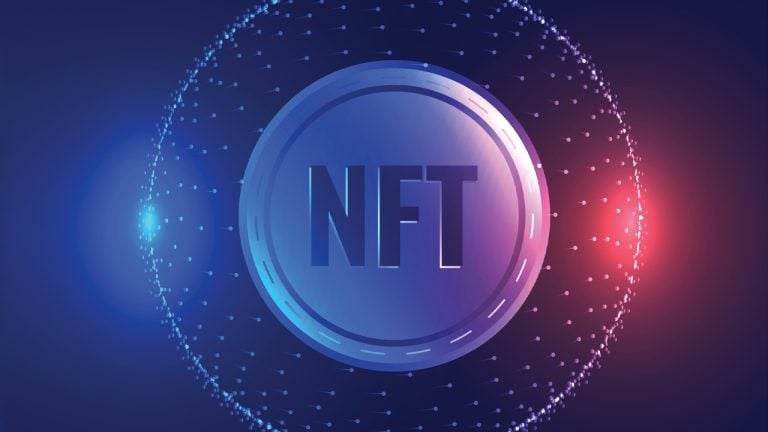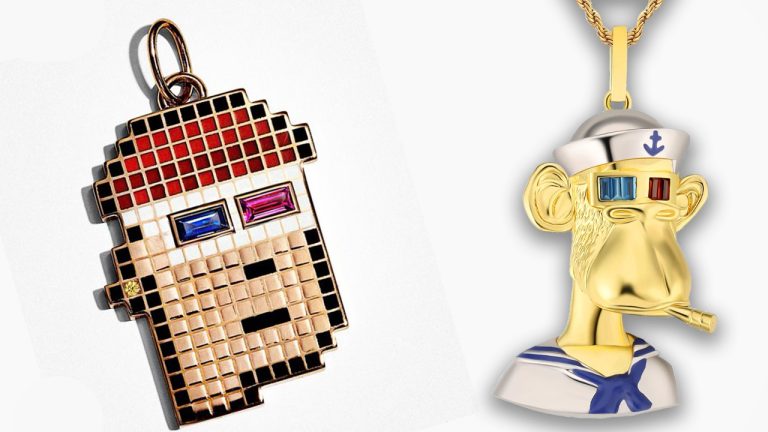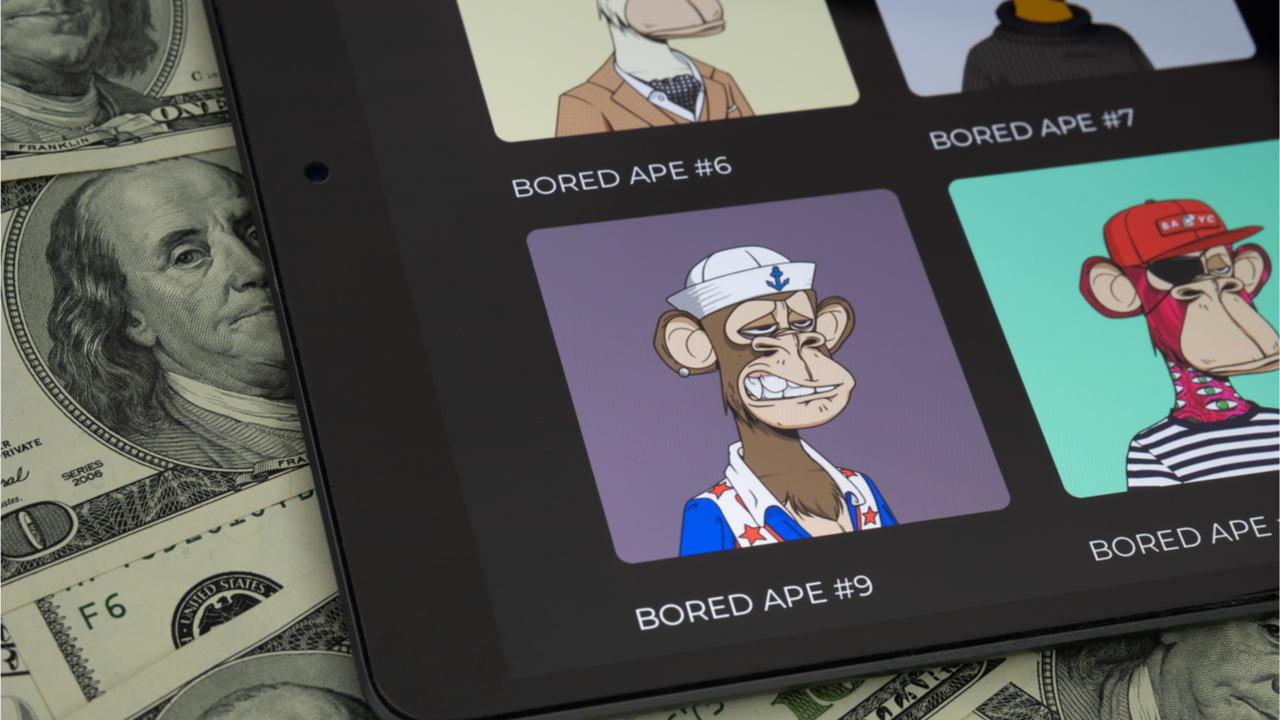 The U.S. government has arrested and charged the creator of “Mutant Ape Planet” non-fungible tokens (NFTs) for allegedly defrauding crypto investors. “The purchasers were ‘rug pulled,'” the Department of Justice (DOJ) described, adding that millions of dollars in cryptocurrency were diverted for the NFT creator’s personal benefits. DOJ Takes Action Against NFT Rug Pull Scheme […]
The U.S. government has arrested and charged the creator of “Mutant Ape Planet” non-fungible tokens (NFTs) for allegedly defrauding crypto investors. “The purchasers were ‘rug pulled,'” the Department of Justice (DOJ) described, adding that millions of dollars in cryptocurrency were diverted for the NFT creator’s personal benefits. DOJ Takes Action Against NFT Rug Pull Scheme […] Non-fungible token (NFT) sales over the last seven days are ending the year 13.97% lower than the week prior. During the last week, statistics show that $147,054,554 in NFT sales were recorded across 334,668 NFT buyers. NFT Sales Continue to Slip: 13.97% Decrease in Last Seven Days NFT sales are down this week, 13.97% lower […]
Non-fungible token (NFT) sales over the last seven days are ending the year 13.97% lower than the week prior. During the last week, statistics show that $147,054,554 in NFT sales were recorded across 334,668 NFT buyers. NFT Sales Continue to Slip: 13.97% Decrease in Last Seven Days NFT sales are down this week, 13.97% lower […] Like most crypto projects this year, non-fungible tokens (NFTs) felt the pain of 2022’s crypto winter as sales are down a great deal and blue-chip NFTs have been slashed in value. For instance, last month, there was roughly $534 million in NFT sales compared to the $2.77 billion in NFT sales sold in Dec. 2021. […]
Like most crypto projects this year, non-fungible tokens (NFTs) felt the pain of 2022’s crypto winter as sales are down a great deal and blue-chip NFTs have been slashed in value. For instance, last month, there was roughly $534 million in NFT sales compared to the $2.77 billion in NFT sales sold in Dec. 2021. […]
The U.S. made the list of regions blocked from using an upcoming website for ApeCoin staking with the related DAO claiming regulations are to blame.
United States-based ApeCoin (APE) holders could miss out on staking rewards after the U.S. was added to a list of regions geo-blocked from using an upcoming APE staking service.
Blockchain infrastructure company Horizen Labs, which is building the site on behalf of the ApeCoin decentralized autonomous organization (DAO), revealed the news in a Nov. 24 update regarding ApeStake.io on Twitter, saying “unfortunately, in today’s regulatory environment, we had no good alternative.”
Ape Staking Update: Big thanks to the talented community devs for their helpful improvements. Bug Bounty AIP delayed us a bit, so we shortened the pre-deposit period by a week to keep our original 12/12 go-live. Alternate front-end sites going live. See card. pic.twitter.com/mgmP7X3SwQ
— Horizen Labs (@HorizenLabs) November 24, 2022
Canada, North Korea, Syria, Iran, Cuba, Russia, and the Russian-controlled areas of Ukraine, Crimea, Donetsk, and Luhansk are also on the block list.
There are likely ways to get around the geo-block. The update noted the website is only an interface to interact with the Ethereum-based open-source smart contract, and “several other” interfaces are being crafted by parties such as exchanges and DeFi platforms.
Prominent Twitter user “Zeneca” told their 312,00 followers that those from regions geo-blocked by ApeStake.io will still be able to stake by interacting with the smart contract directly or using another interface without geo-blocks. Those in blocked regions could also use a virtual private network (VPN) to spoof their location.
The decision to block U.S. users likely resulted from the probe in October by the Securities and Exchange Commission (SEC) into APE creator Yuga Labs. The regulator is investigating if the company’s nonfungible tokens (NFTs) act more like securities and are subsequently violating federal laws.
Meanwhile some Bored Apes are still fetching high prices even during the depths of Crypto Winter. An NFT from Yuga Labs’ flagship Bored Ape Yacht Club (BAYC) collection sold for 800 Ether (ETH), or almost $950,000 at the time of sale on Nov. 23.
BAYC #232 was sold to pseudonymous NFT collector “Keungz” — who seemingly has multiple Yuga Labs NFTs according to their OpenSea profile — by Deepak Thapliydal.
Thanks @dt_chain for the good deal⚓️#NewNFTProfilePic NFT by @BoredApeYC pic.twitter.com/CgIy73fBx5
— Keungz ❤️ Memeland ☠️ YGPZ ♀️ (@keung) November 23, 2022
Thapliydal is the CEO of Web3 infrastructure company Chain and gained notoriety for making the Guinness World Records for buying the “most expensive NFT collectible” after purchasing CryptoPunk #5822 for 8,000 ETH, or $23.7 million, on Feb. 12.
The sale of BAYC #232 was closely followed by another on Nov. 24 for BAYC #1268 between two unidentified wallets for 780 ETH, or almost $940,000 at the time of sale.
The sales are significant as the NFTs sold far above the current floor price for the collection which has seen a decline over the past months.
According to data from NFT Price Floor, the minimum price for a Bored Ape at the time of writing is just under 63 ETH, or about $75,600, and is 80% down in U.S. dollar terms from its May 1 all-time high of 144.9 ETH, or over $391,000 at the time.
The community-led DAO made up of ApeCoin holders has launched its own marketplace to buy and sell NFTs from the Yuga Labs ecosystem.
The aptly named ApeCoin Marketplace built by NFT infrastructure firm Snag Solutions was launched on Nov. 24 and supports transactions of the BAYC, Mutant Ape Yacht Club, Bored Ape Kennel Club, and Otherdeed NFT collections.
In a Nov. 24 Twitter thread Snag Solutions CEO, Zach Heerwagen, said the marketplace “includes unique features” specifically for NFT communities including the ability to stake APE.
1/ The custom marketplace includes unique features built specifically for the BAYC and Otherside communities, including ApeCoin staking and NFT metadata integrations. pic.twitter.com/mem2ZsXNkt
— Zach | Zheerwagen.eth (@ZHeerwagen) November 23, 2022
The marketplace “respects royalties while heavily reducing fees” according to Heerwagen. A 0.25% slice of each sale is held in a multi-signature wallet and used to fund DAO initiatives.
Related: Industry expresses confidence in the NFT space amid the FTX collapse
The marketplace’s support for royalties comes as some other NFT marketplaces such as the Solana (SOL)-based Magic Eden and Ethereum-based LooksRare stopped enforcing creator royalties by default.
Others such as OpenSea have continued to enforce royalties and even created a tool to help NFT creators with on-chain enforcement of royalties, allowing them to blacklist the sale of their NFTs on royalty-free marketplaces.
 On Sunday, August 21, 2022, the floor value of the Cryptopunks non-fungible token (NFT) collection briefly surpassed the Bored Ape Yacht Club (BAYC) NFT collection’s floor value. While it’s not by a huge amount, at the time, Cryptopunks floor was 66.45 ether, while BAYC’s least expensive NFT was 64.99 ether.
Cryptopunks Fleetingly Reclaims the Throne […]
On Sunday, August 21, 2022, the floor value of the Cryptopunks non-fungible token (NFT) collection briefly surpassed the Bored Ape Yacht Club (BAYC) NFT collection’s floor value. While it’s not by a huge amount, at the time, Cryptopunks floor was 66.45 ether, while BAYC’s least expensive NFT was 64.99 ether.
Cryptopunks Fleetingly Reclaims the Throne […] Apecoin DAO community members have approved a governance proposal that will fund a Bored Ape Yacht Club (BAYC)-centric news publication called the Bored Ape Gazette with $150,000 for the first year. While the Bored Ape Gazette has been in operation since June 1, 2021, the site’s operator promises to “keep the community better informed” with […]
Apecoin DAO community members have approved a governance proposal that will fund a Bored Ape Yacht Club (BAYC)-centric news publication called the Bored Ape Gazette with $150,000 for the first year. While the Bored Ape Gazette has been in operation since June 1, 2021, the site’s operator promises to “keep the community better informed” with […] The prominent rap stars Eminem and Snoop Dogg released a new music video that showcases the Bored Ape Yacht Club (BAYC) non-fungible token (NFT) collection. The duo’s latest single called “From the D 2 The LBC” debuted at this year’s Apefest, an annual gathering for BAYC and Mutant Ape Yacht Club (MAYC) owners. From the […]
The prominent rap stars Eminem and Snoop Dogg released a new music video that showcases the Bored Ape Yacht Club (BAYC) non-fungible token (NFT) collection. The duo’s latest single called “From the D 2 The LBC” debuted at this year’s Apefest, an annual gathering for BAYC and Mutant Ape Yacht Club (MAYC) owners. From the […] On June 4, 2022, the Bored Ape Yacht Club (BAYC) Discord server was compromised and a phishing scam targeted non-fungible token (NFT) collectors holding BAYC, Mutant Ape Yacht Club (MAYC), and Otherside NFTs. According to an analysis by the Web3 and blockchain auditing and security firm Certik, the BAYC Discord server attacker may have been […]
On June 4, 2022, the Bored Ape Yacht Club (BAYC) Discord server was compromised and a phishing scam targeted non-fungible token (NFT) collectors holding BAYC, Mutant Ape Yacht Club (MAYC), and Otherside NFTs. According to an analysis by the Web3 and blockchain auditing and security firm Certik, the BAYC Discord server attacker may have been […]
Data on the most well recognized nonfungible token (NFT) projects show that key metrics have fallen with floor prices and market capitalization over the past month.
“Blue-chip” nonfungible token (NFT) collections have seen their floor prices and market capitalization slide over the past 30 days, with some of the most well-recognized projects halving in value for these key metrics.
Data collected on key Ethereum (ETH) NFT projects by DappRadar show the floor prices of established collections such as CryptoPunks, Bored Ape Yacht Club (BAYC), Mutant Ape Yacht Club (MAYC), and Moonbirds, are at most down around 55% over 30 days.
The MAYC is the worst off of the four with the floor price diving 55% to 16.7 ETH ($31,300). The more popular BAYC has fallen over 47% to 86.7 ETH ($163,000), and CryptoPunks by almost 49% to 45 ETH ($85,000).
The only collection to gain in the month was Moonbirds up 22% with a 19.6 ETH floor price, roughly $37,000.
Whilst the floor price for Moonbirds may be up, its market cap has fallen 55% to $368 million. The others have also tumbled with the biggest losses being the MAYC, down over 71% to under $610 million, whilst BAYC and CryptoPunks were down 62% and 51% respectively.
Despite the falling metrics the collections still continue to dominate the top NFT sales over the past 30 days the most expensive being a BAYC NFT sold for 410 ETH on May 5, worth about $1.2 million at the time.
A free-to-mint NFT collection called Goblintown launched on May 22 now commands a nearly $50 million market cap and is in the top 30 NFT collections.
Despite the website stating the NFTs have “No roadmap. No Discord. No utility.”, Goblintown is in second place for volume over the last seven days at nearly $23 million according to DappRadar, beating out collections such as Otherdeeds and the Bored Ape Yacht Club.
The collection features 9,999 “goblins” which debuted without any real marketing, fanfare or the usual hype-building for a NFT project. The team behind Goblintown is not known and often post seemingly nonsensical and crude tweets from the official Twitter account.
ₐₐₐᵤᵤᵤᵤgggg ₙᵤₘbᵤᵣ ₒₙₑ pic.twitter.com/eLGl6ASJXI
— goblintown.wtf (@goblintownwtf) May 22, 2022
Despite all of these factors, the floor price of the collection was 2.7 ETH or around $5,000 on NFT marketplace OpenSea at the time of writing. The most expensive NFT sold from the collection has fetched a price of 69.4 ETH or about $130,000.
Imagine working on a NFT project for months, setting up collabs with the biggest projects/alpha groups, getting 200K followers engagement farming WL spot giveaways, then after mint everyone bricks the floor under mint price
— ashrobin (@ashrobinqt) May 22, 2022
goblintown: free mint, no collabs, no WL, no discord pic.twitter.com/bMiJoWufyg
RTFKT (pronounced “artifact”) the Web3 arm of sportswear and sneaker giant Nike has added an Ethereum Name Service (ENS) domain to the company's repertoire, purchasing “dotswoosh.eth” for 19.72 ETH, about $37,000.
Related: NFT 2.0: The next generation of NFTs will be streamlined and trustworthy
Whilst it’s unclear what use Nike will put the domain to, the company has been investing in Web3 through the creation of multiple sneaker-based NFT collections with RTFKT, and has defended its claim to the space, taking a reseller of Nike NFT sneakers to court.
The purchase of this latest ENS domain brings the total owned ENS domains by the company to ten.
The popular move-to-earn NFT game Stepn has banned users in China from its app to adhere to Chinese regulations. Mainland Chinese users make up 5% of the platform's overall user base and Stepn’s founder has said the move will not have a significant impact on the firm's finances.
The community for a Solana (SOL) based NFT game has dished out payback to a scammer after the developer of the game raised royalties to 98% on a batch of NFTs stolen in a Discord hack phishing scam. Community members bought back the NFTs to return them to their original owners whilst the hacker made a measly 2% on each sale.
 On Saturday, the creators of Bored Ape Yacht Club (BAYC), Yuga Labs, revealed the Otherside metaverse virtual land sale which turned out to be one of the largest non-fungible token (NFT) mints to date. The Otherside metaverse virtual land sale raised close to $320 million by selling 55,000 parcels of Otherside land. Otherside Metaverse Sees […]
On Saturday, the creators of Bored Ape Yacht Club (BAYC), Yuga Labs, revealed the Otherside metaverse virtual land sale which turned out to be one of the largest non-fungible token (NFT) mints to date. The Otherside metaverse virtual land sale raised close to $320 million by selling 55,000 parcels of Otherside land. Otherside Metaverse Sees […]